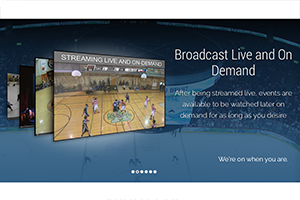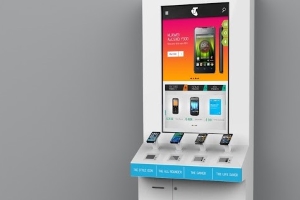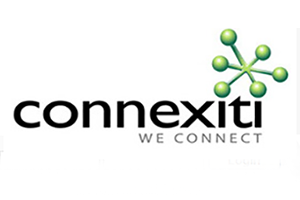Business and Professional Services Industry — Outsourcing Essentials
Service-oriented businesses rely on a very specific resource: the workforce. Questions such as, “who’s the most appropriate employee to fulfill an order”, and “how to best provide him/her with order tracking information?” are commonplace in an industry where real-time tracking of human behavior is a must.
When small companies start growing, answering these questions becomes unavoidable — and that’s when Professional Services Automation (PSA) becomes essential.
Professional services automation (PSA)
Ready-made or on-demand?
When planning PSA deployment, you have two options: buy a ready-made SaaS (Software as a Service, aka a licensed solution), or develop custom (on-demand) software.
Ready-made software is usually suitable for a small business that employs < 50 employees and follows traditional business processes. However, as the company grows and the business processes become more customized, tailoring operations to a “rigid” software might quickly become inefficient. In this situation, midsized and large companies are wise to contract IT outsourcing companies for customized PSA software development. In fact, some PSA solutions end up being so flexible and efficient that it's not uncommon for the company to resell them to other parties within the same industry.
Customization and modular structure
PSA, like all ERP systems either ready-made or on-demand, are often modular. Due to their fast iterative development process, you only get what you presently need. Every module works independently, bringing immediate value to your business. Adding “as needed” functionalities to PSA software is easy and fast.
Data and its representation
The golden rule says that data and a system’s logic must be built separately from their representation. This way, many applications and websites can access the same core data structure through a set of APIs, independent of how frequently they’re upgraded or renewed.
Mobile and desktop
Ubiquitous access (smartphones, tablets, PDAs, laptops and PCs) is particularly important for web-based architecture. When that’s in place, any reliable outsourcing provider can build mobile companion apps for both iPhone and Android to supplement the desktop versions of your PSA or Field Service Management (FSM) solution. Mobile applications including digital pen functions might also have an edge when it comes to reducing paperwork and data input time.
Common challenges for service-oriented businesses
A PSA can either be industry-specific or generic. The broadest classification divides PSAs into two categories: by field (i.e. plumbers, electricians, utility, audit and consultancy personnel) and by office services (i.e. accounting, advertising, IT, marketing).
While every industry-specific PSA has its own nuances, there are many common challenges that all businesses face, such as:
Dispatching and allocating
Geolocation tracking helps dispatchers and managers pick the right employee (in terms of both skill-set and proximity) for the job, and helps ensure that schedules are respected.
Scheduling projects/jobs and employees
Scheduling is the core activity for service providers, whose top priority is making sure all users are on the same page. When a manager, field employee or client accesses an order’s details and make changes, it’s vital that all devices are promptly updated.
Notifying
Every new order must be delivered to the field technician, either by push notification, e-mail or SMS. The technician should approve it and, when appropriate, be reminded (with an alert) to perform a specific action.
Job/Project card
After an order is received, assigned and approved, a job card is automatically created. Its purposes are time and expense tracking, and, via integration with other PSA modules, automated invoicing and billing.
Employee tracking: detailed profiles and work hours
Scheduling and job card modules can be integrated with the employee cards module, which tracks the number of work hours and forwards them to a payroll system.
An employee profile contains information on the worker’s schedule, current availability, utilization, client feedback, and full project history. This data helps to understand the employee’s interests, improve his/her motivation, and manage the entire workforce more effectively.
Managing suppliers and inventory
Integrating with supplier catalogues can improve inventory-related tasks, such as obtaining items at a better price, or automatically re-stocking when a product reaches a certain threshold.
Whenever something is purchased, all the relevant information is directly imported into the inventory module. If needed, a barcode can be created for each item and scanned with a special device, so that if an employee takes an item, it can be automatically assigned to him/her and subtracted from storage.
Invoicing, billing and accounting
It goes without saying that account tracking, automated invoice creation, instant delivery, and billing status tracking help reduce accounting expenses and time-to-payment.
Collaborating with customers and increasing retention
Your customers expect fast online access to everything. With the right PSA, your client’s profile can include contacts, order history, job status reports, invoice status and more. Additional modules dedicated to sales management, certifications, and employee collaboration can be built to ensure seamless communication across your workforce, and between your workforce and your clients.
A PSA’s main goal is to reduce paperwork and operational costs, prevent inefficiencies, theft and loss of resources, and increase employee motivation and customer retention. How would we sum up a PSA’s core objective? “Revenue increase”!
Sibers’ experience in business and professional services
Sibers’ experience in the service industry dates back to 2001. Over the years, our projects have covered healthcare, printing, telecom, marketing, production, utility services, and a variety of other PSA solutions for both startups and big businesses. Our solutions range from basic web-order systems for small firms, to complex intranets and fully-loaded management systems for huge enterprises.
One of our solutions, developed for an Australian commercial utility service, includes a web-based field personnel management system, a mobile application for field utilization, and digital pen/digital paper form integration. The solution has worked so well that our client now offers it as an SaaS to 200+ companies.
To learn more about our track record of developing top-notch technology solutions for the service industry, please see our Case Studies.
Featured case studies developed for Business and professional services industry
Need a development team for professional services automation?
Request a quoteWhitepapers
- Building MVP for Startups
- Architecture: Why Does it Matter?
- Functionality vs. Classy: The “90/90 Percent” App Rule
- The Essentials of Custom Development for Printing Businesses
- IT Projects: It Takes Two To Meet A Deadline
- E-Learning Evolution: Custom E-Learning Development Trends
- Getting iOS App Crash Logs
- You Asked, We Answered: Testing, Debugging, and What on Earth Does “Best Practices” Really Mean?
- The Limits of Perfection: Where Pixel-perfectionists Need to Stop and Think
- Software cost estimation: What factors are key in IT project estimates?
- Why go outsource?
- DIY: When Does It Make Sense?









